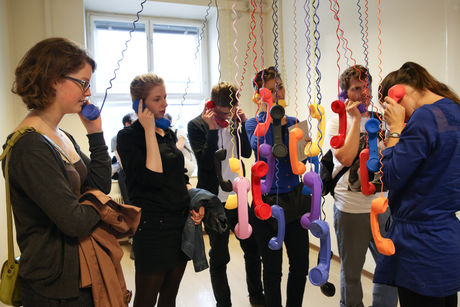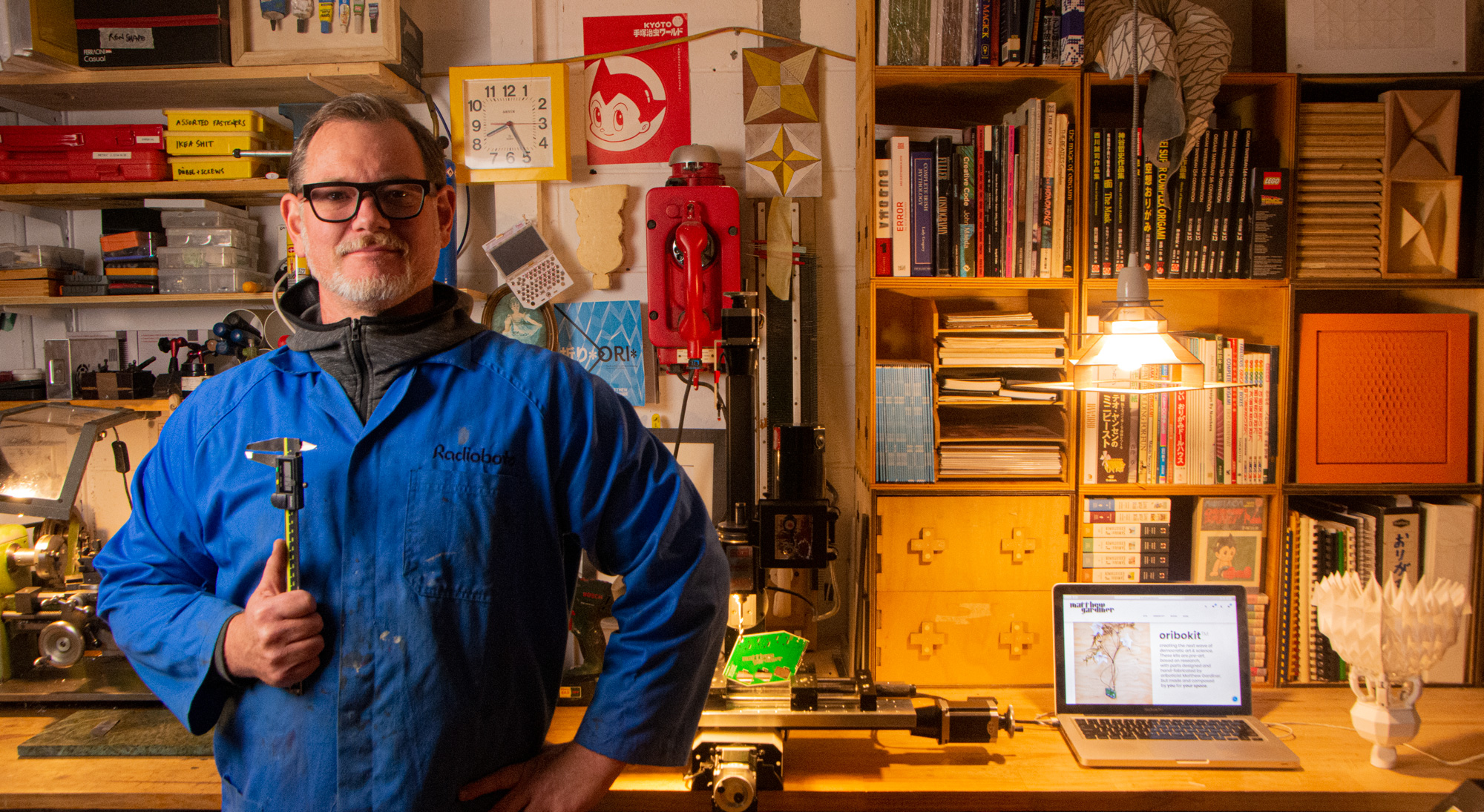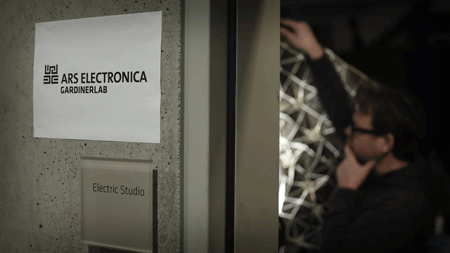
Dr Matthew Gardiner is an artist most well known for his work with origami and robotics. He coined the term Oribot 折りボト in 2003, and since works in the field of art/science research called Oribotics: a field of research that thrives on the aesthetic, biomechanic, and morphological connections between nature, origami and robotics.
Gardiner is the Head of Art Science Research Strategies at the Ars Electronica Futurelab and recipient of two FWF PEEK Art Science Research Projects. Research work is currently ongoing, results, artworks and publications are documented on https://orilab.art
This site contains a collection of selected works, video documentation, photographs and research. Some items can be purchased directly, however, if you have interest to exhibit, commission or purchase an artwork, please contact Matthew.
oribokit robotic origami kit
Oribokit: Gardening for Robots introduces a new artscience-kit by Ars Electronica Futurelab researcher Matthew Gardiner. The kit allows you to make your own robotic garden at home. The assembled kit grafts onto a tree branch and is designed to minimise materials usage and maximise modular recyclability for robotic origami applications.
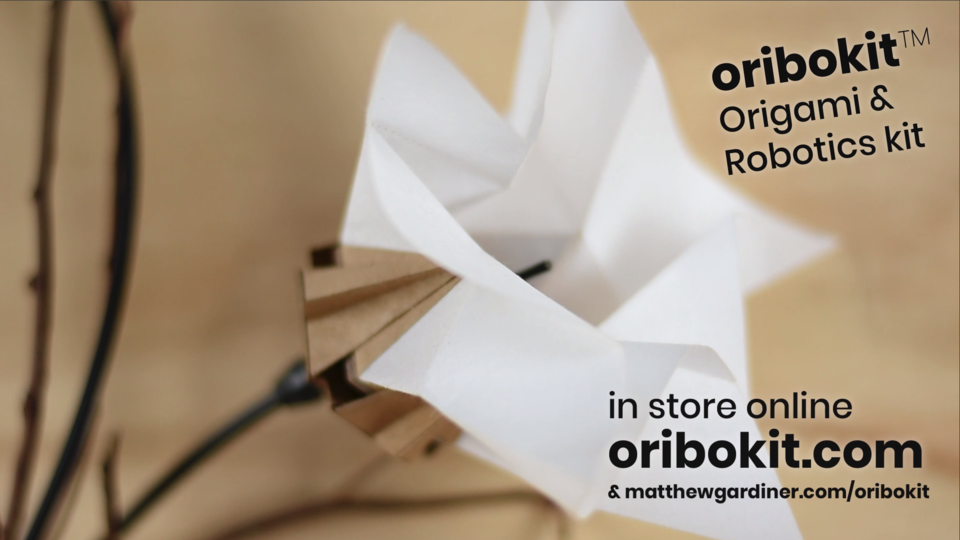
The Folded Geometry of the Universe
For The Folded Geometry of the Universe* my inspiration came from examining the scale of folds in nature as criteria to understand folds. We theorise that folds exist at all scales of nature, from the nanoscale of folds in strings of DNA, pleats in paper at the origami scale, craggy mountains and valleys folds formed by the awesome crushing power of tectonic plates, and much much larger it is theorised, that the shape of the universe is folded, that gravity and dark matter fold the shape and fabric of the universe.
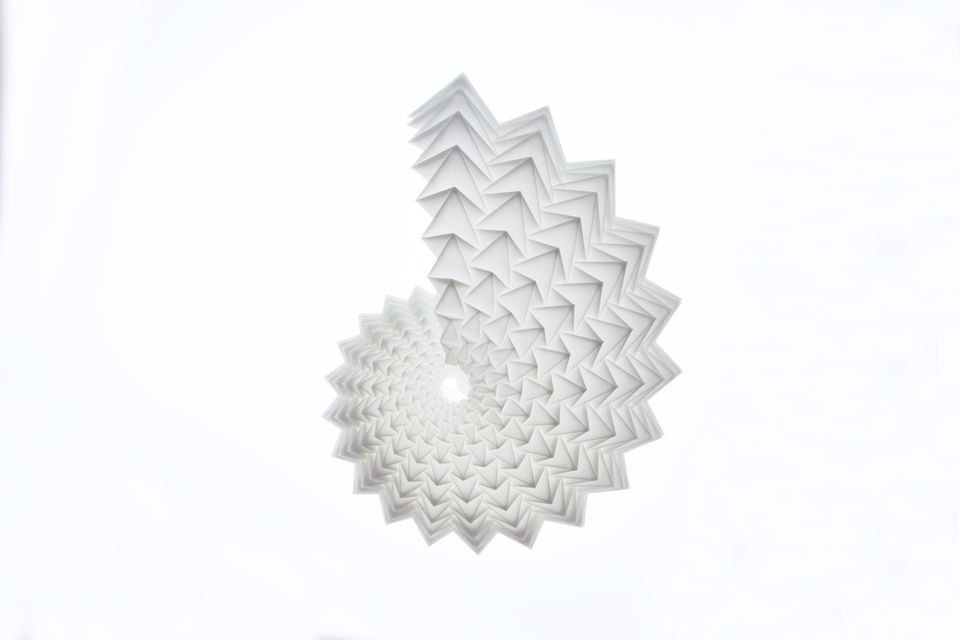
Light is Time Folds are Space
Light is Time Folds are Space is a large scale installation of hundreds of folded forms with an algorithmic variance and lit with a lighting sequence intended to simulate the passage of the sun over the course of day.
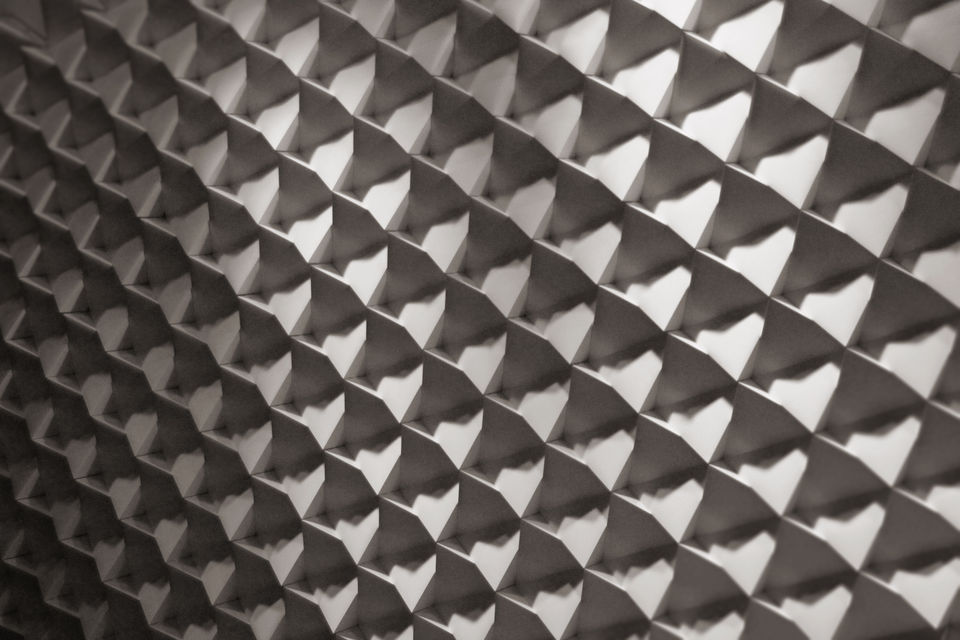
Oribotics [Tokyo Design Touch]
Oribotics at Tokyo Design Touch was the Japanese premiere of oribotics. Shortly after arriving the title shifted from oribotic オリボチク to oribo オリボ or even better to include the kanji for fold 折りボ(like aibo or asimo) a very cute name with a rounder sound.
![Oribotics [Tokyo Design Touch]](data/scaled/960_Tokyo-Design-Touch-1.jpg)
Oribotics A brief history
Learn about the origins and history of Oribotics, dating from 2004, including a list of exhibitions and world premiers of Oribotics.
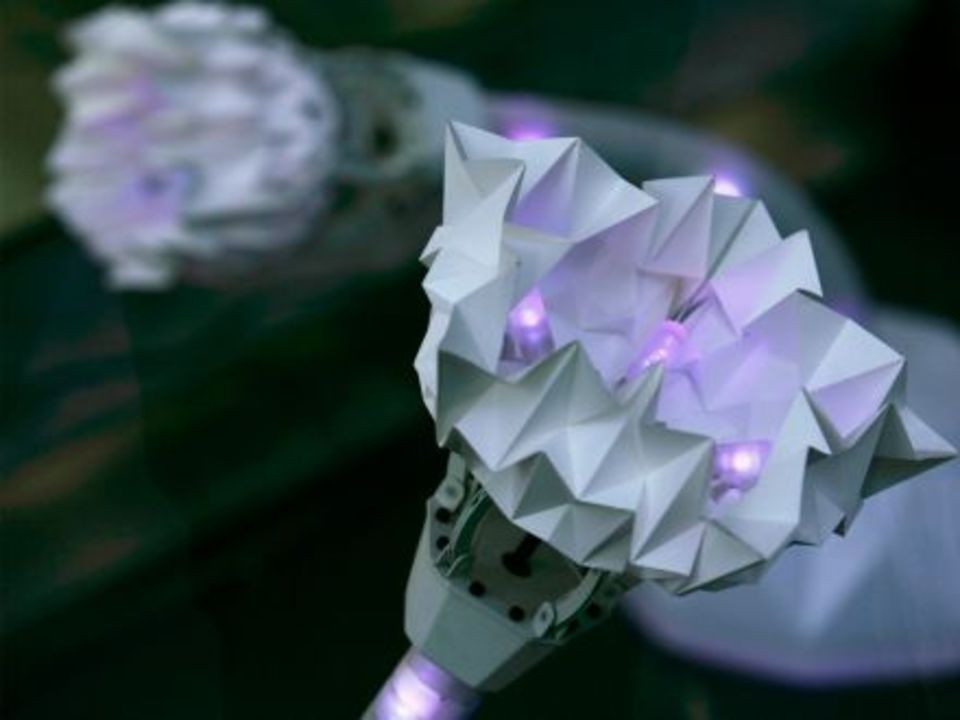
Oribotics [Laboratory]
Oribotics [laboratory] was a collaboration between Matthew Gardiner and Aphids, especially Artistic Director David Young as Composer, and was shown over two nights at the Asialink centre at Melbourne University in 2005.
![Oribotics [Laboratory]](data/scaled/960_oribotics-lab_04.jpg)
Neben der Nibelungenbrucke
My Ars Electronica Festival 2020 Kepler's Garden has two projects, one is a robotic origami kit available at https://oribokit.com and this Augmeneted Reality project is the other. This project asks you to place a sausage stand, beer, leberkas semmel or bratwürstl in your own town and remember an Ars Electronica Festival.
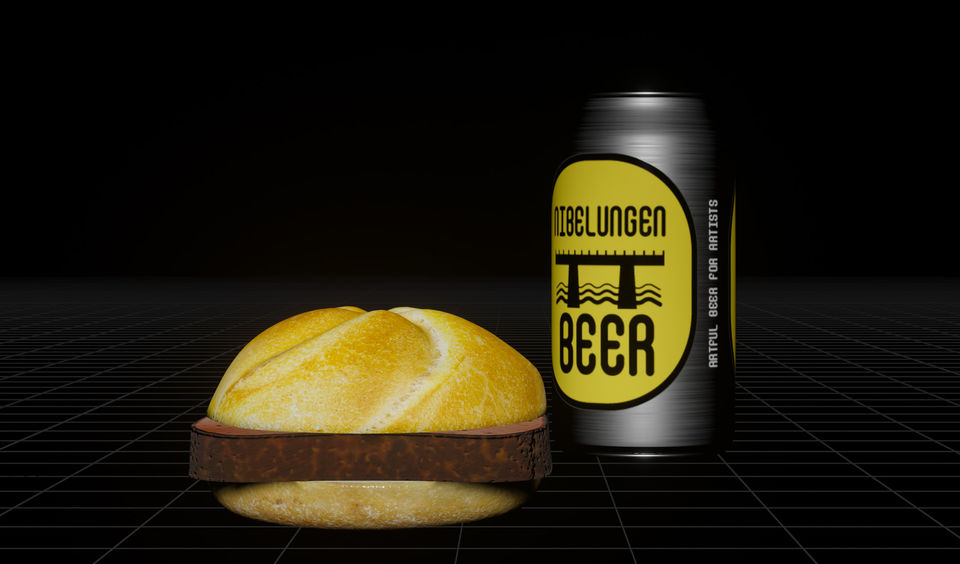
ORI*
Origami and Robotics led to the discovery of the field of Oribotics, and from this convergent field, significant questions relating nature, technology and folding emerge. A collaboration with Ars Electronica Futurelab.
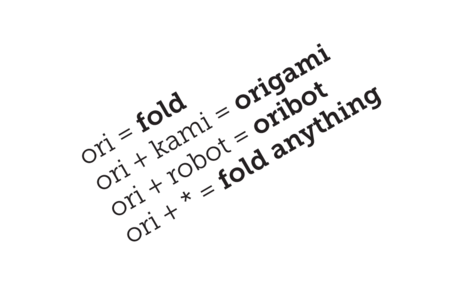
BalletLab Origami
A collaboration with Balletlab's director Phillip Adams.
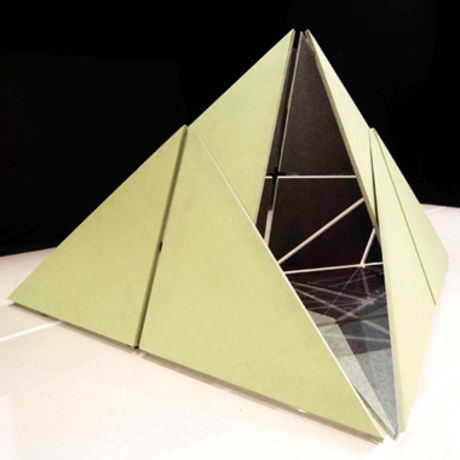
ZigZag
Trouble on Planet Earth, by The Border Project won the Ruby Award for Innovation and Best Show at the 2008 Adelaide Fringe.
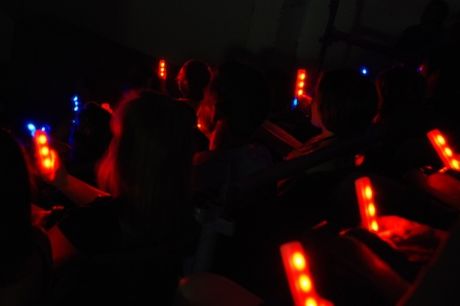
Radiobots
RadioBots is an artwork by Matthew Gardiner, in collaboration with Etheira Technologies, Aphids and Speak Percussion
"meticulously constructed objects... the sonic force reverberates around the rooms and halls to sybiotic effect - what seems like an infestation of the alien quickly becomes a polyvocal chorus of the environment... an agent of purest bedlam."RealTime]
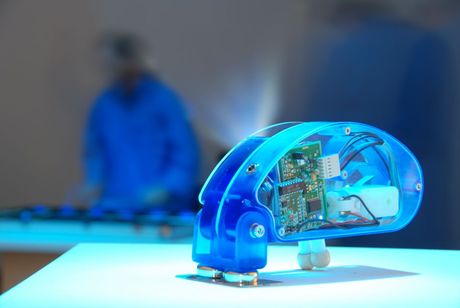
Oribotics [.de]
Oribotics [.de] 2008
Exhibited at the Künstlerdorf Schöppingen May 2009 for the 20 year Jubillee.
![Oribotics [.de]](data/scaled/460_oribotics-de-side.jpg)
Residencies
Matthew Gardiner has had the good fortune to have been selected for a number of artistic residencies, and they are the most rewarding, productive and creative times, period.
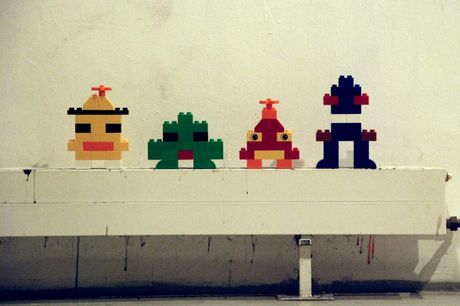
On Oribotics
Oribotics is a field of study concerned with origami and robotics, and more broadly with folding and technology. Watch video interviews/documentaries featuring Matthew Gardiner on the topic of his Oribotics.
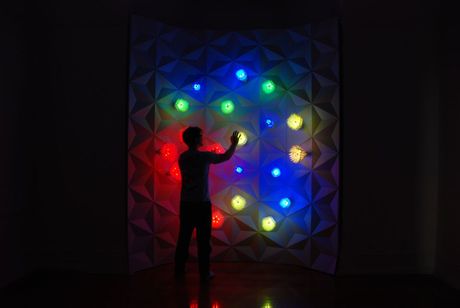
Synthetic Memetic
Rick Rolling combined with the present-day terror of police DNA tagging technologies form the basis of this social commentary on Synthetic Biology, genetics, memetics, and the mechanisms of control.
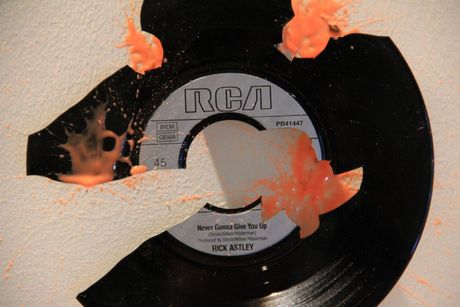
Oribotics [origin]
Oribotics [origin] premiered at the Next Wave Festival, May 18-30th 2004 at TCB Gallery. It was the first exhibition by Matthew Gardiner of his new field of research: Oribotics.
![Oribotics [origin]](data/scaled/460_4OSME_talk_-_15.png)
Oribotics [Network]
Oribotics [network] was a unique art and technology installation in the Atrium at Federation Square, Melbourne, Australia, drawing on cutting edge research in biology, computing, and scientific origami. Visitors discoverer living biomimetic works attached to the glass panes of the Atrium’s Fracture Galleries.
Giant Origami
Collaborations with Matthew Gardiner, the Melbourne Origami Group, architects, choreographers and designers on many large scale origami projects. By far the largest was Origami House, a full size house folded from paper.
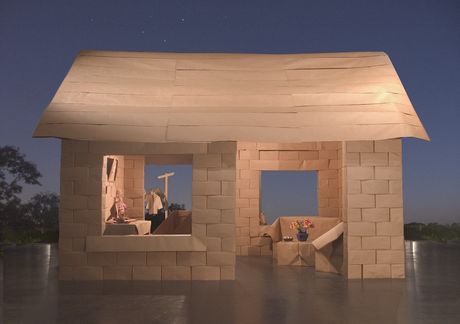
oriiro
IRO-ORI (Japanese) means colour-fold (farbenfalt in German), and is the title of a news series of paintings by Matthew Gardiner.
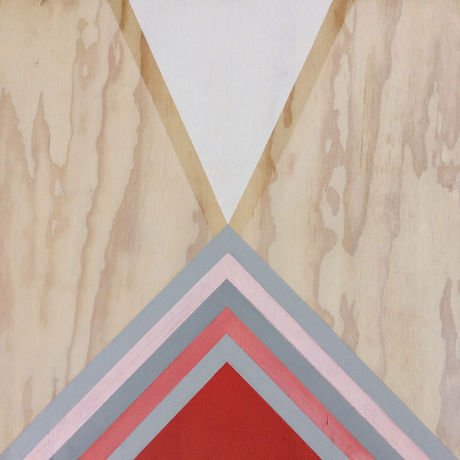
Oribotics [futurelab]
Oribotics [futurelab] is Matthew Gardiner's current artist project as the direct result of an artistic residency at the Ars Electronica Futurelab in 2010. Oribotics [futurelab] will premiere at the 2010 Ars Electronica Festival.
![Oribotics [futurelab]](data/scaled/460_oribotics-futurelab_DSC_0511.jpg)
Everything Origami
Everything Origami is the ultimate guide to origami for beginners and experienced hobbyists alike. Containing step-by-step instructions on how to...
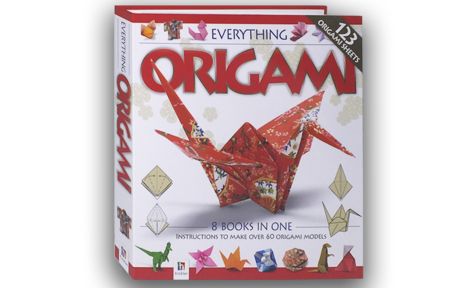
Designer Origami
Designer Origami is the ultimate guide to the stylish, creative and innovative world of origami design. More than just folded paper, origami...
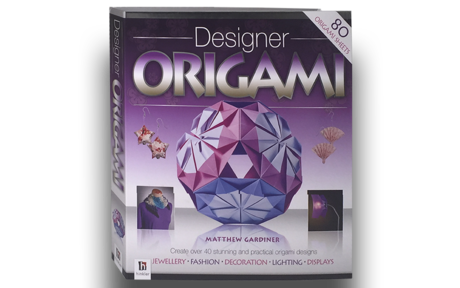
ORI* Volume 1
ORI*
The Art and Science of Origami and Technology
Works 2015–2017. Volume 1.
ISBN: 978-0-6484076-0-7...
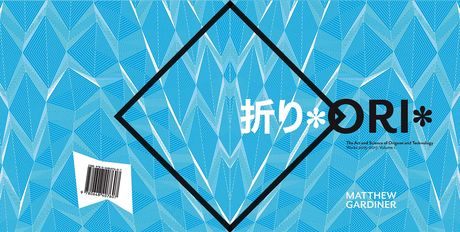
ORI*Universe Pendant
Hang an ORI*Universe around your neck to remind you of how amazing your place is in its folds.
At the core of my artistic practice, I attempt to...
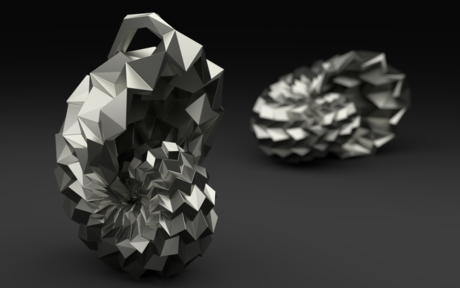
Matthew Gardiner
Dr Matthew Gardiner, Australian Artist and Researcher
Dr Matthew Gardiner is an artist most well known for his work with origami and robotics. He coined the term Oribot 折りボト and then created Oribotics, a field of art/science research that thrives on the aesthetic, biomechanic, and morphological connections between nature, origami and robotics. Gardiner holds a position as an artist and key researcher at the Ars Electronica Futurelab in Linz, Austria, where the philosophy of art, society and technology intersect.
As an artist, Gardiner works with origami and robotics: Oribotics. The work arises from considering folded forms, their kinetic properties and electromechanical methods of actuation, sensing, interactions and luminous display. In 2003 Gardiner coined the terms Oribot and Oribotics, to define the emergent field of folding, robotics and technology, and has produced the following works with premieres: Oribotics 2004 at Next Wave Festival, Oribotics [laboratory] 2005 at Asialink Center, Oribotics [network] 2007 at the Melbourne International Arts Festival, Oribotics [de] 2008 at Künstlerdorf Schöppingen, Oribotics [house of dreaming] 2009 for Arena Theatre Company, Oribotics [the future unfolds] 2010 for Ars Electronica Festival and Tokyo Design Touch, 2020 Oribotics [clima] at Centro de Ciencias de Sinaloa (Science Center of Sinaloa).
Gardiner wields a diverse skill set with expertise in digital and traditional techniques. An autodidact with high level artistic conceptual skills, focusing on artefact products. Capabilities extending design domains of photography, videography, experience design, electronics (PCB and system design), software and programming (c, c++, python, PHP, js, bash, web admin, apache/MySQL/sockets), 3D CAD (Solidworks, rhino, grasshopper, blender, including python scripting). Capable of establishing and leading a team within an art-science research-based framework with a focus on digital fabrication, generative geometry, and material experimentation. Also, a ninja-level origami artist and designer. Recent works focus on the role of art and design in engineering and scientific kits designed to build competence and curiosity in oribotics.
Key Grants / Awards / Education
1997 Bachelor of Fine Art Photography, Victorian College of the Arts
2005 Visual Arts Board Tokyo Studio Residency
2009 Visual Arts Board New Work Grant
2009 Rupert Bunny Fellowship
2010 Australia Council Residency at Ars Electronica
2011 Employed by the Ars Electronica Futurelab Research and Innovation Group
2014 FWF PEEK Art Science Grant: ORI* on the language of folding and technology
2019 PhD in Fine Art. University of Newcastle
2020 FWF PEEK Art Science Grant: ORI* on the art and science of origami and robotics
Key Exhibitions
2021 Oribotics [clima], Centro de Ciencias de Sinaloa, Mexico
2020 oribokit® art science robotic origami kit https://oribokit.com
2019 Oribotics [the future unfolds], Science Center Singapore
2017 The Folded Geometry of the Universe, Experimenta Make Sense, RMIT, Melbourne
2016 ORI* coding for matter, Kyoto Design Institute, Kyoto, Japan
2014 Oribotics [the future unfolds], Surface to Structure, Cooper Union, New York City
2012 Oribotics [the future unfolds], Centre d’Art Contemporain Genève, Switzerland
2013 Light is Time, Folds Are Space, Alhôndiga Bilbao, Spain
2013 Project Genesis, (as lead curator) Ars Electronica Centre, Linz, Austria2009 RadioBots, Shepparton Art Gallery
2008 Oribotics [dublin], ArtBots, Science Gallery, Dublin
2007 Oribotics [network], Melbourne International Arts Festival, Federation Square, Melbourne
2005 Oribotics [laboratory], Asialink Centre, Melbourne University
2004 Oribotics, Electrofringe, Newcastle Regional Gallery, Newcastle
Publications
Author of best-selling Everything Origami and Designer Origami.
See Dr Gardiner's academic research here: https://www.researchgate.net/profile/Matthew-Gardiner-3, here: https://matthewgardiner.net/#research and here: https://orilab.art.
Gardiner's other works include Origami House 2003: one square kilometre of paper folded into a full-size house with the Melbourne Origami Group, 1001 Cranes: 7000 paper cranes installed in the shape of a three-story high Gingko bonsai, and Radiobots a radio-based percussive instrument for performance on architecture. From 2005-2006 he starred as a television presenter on ABC Sunday Arts, teaching the art of origami. He is the author of Everything Origami, a best selling general origami book and collaboration with Australia's leading origami artists. He is the publisher and editor of Folding Australia 2005 and Folding Australia 2007.
Gardiner curated a major exhibition Project Genesis on the topic of Synthetic Biology for the Ars Electronica Centre. He was awarded a three year PEEK grant from the Austrian Science Fund FWF for his research into the topic of ORI* on the aesthetics and language of folding and technology. The University of Newcastle awarded Gardiner his PhD, Australia for his thesis titled ORI*.
Gardiner has been the recipient of grants and awards from the Austrian Science Fund (FWF), the Australia Council for the Arts, The City of Port Phillip Rupert Bunny Fellowship, Arts Victoria (Arts Innovation Board), Australian Network for Art and Technology, and a graduate award from the Victorian College of the arts. He has been a resident artist at the Ars Electronica Futurelab, Künstlerdorf Schöppingen, Australia Council Studio in Takadanobaba Tokyo, PICA, Federation Square, Origami House Tokyo, and the Digital Artist@Latrobe Regional Gallery.
Gardiner graduated from the Victorian College of the Arts, Fine Art Photography and subsequently mentored by artists Patricia Piccinini and Peter Hennessey at Drome in Melbourne. He began folding paper at the age of eight, and around the same time, he was given an Apple IIe by his father to learn how to code.
Research by Dr Matthew Gardiner
Dr Matthew Gardiner is a world leading researcher on the topic of the Art and Science of Origami and Technology. Since 2010, Gardiner's genre defining work has been situated within the research laboratory of the Ars Electronica Futurelab. One of the more interesting roles of an artistic researcher in a media-lab is to constantly question and to redefine the use of media. His series of Oribotic artworks do just that, by questioning the role of the fold, Gardiner interrogates all folded media, natural, artificial and technological.
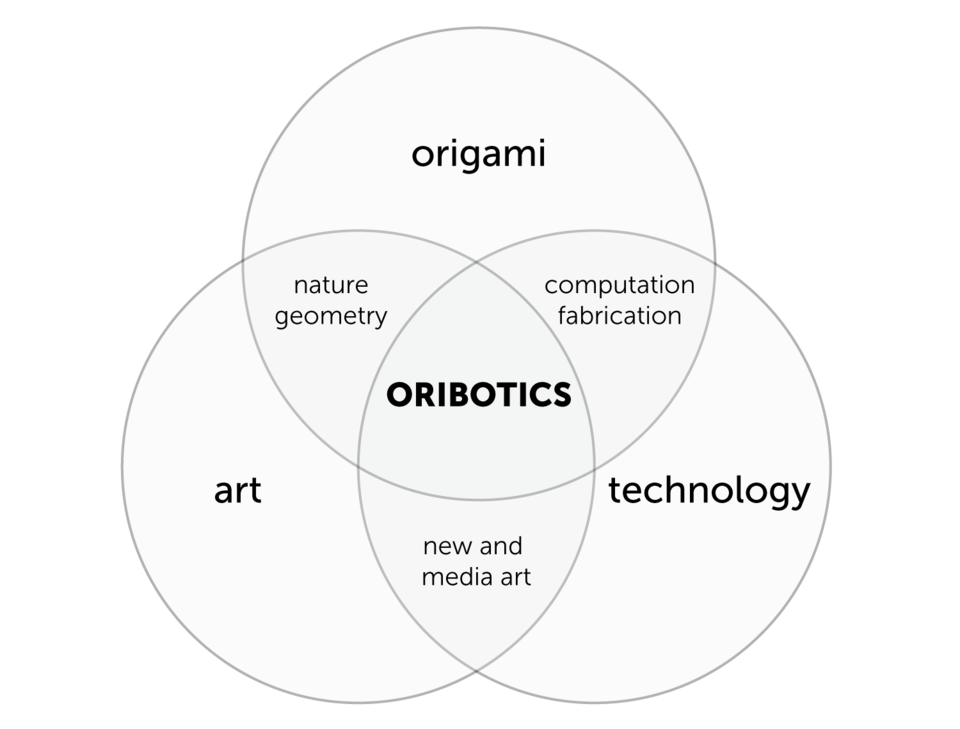
In 2019, Gardiner's doctoral thesis titled ORI* on the Aesthetics of Folding and Technology, asks How can artistic processes transcend the medium of paper, through parametric computational origami and digital fabrication of oribotic artworks using the natural language of folding?.
This led to the development of several new methods that enable the design and fabrication of complex origami geometries with kinetic functions. This work was further informed by an FWF PEEK grant to investigate the broader role of technology and folding in art, architecture and design.
The key question underpining recent works stems from the fundamental question "what is a fold" and draws inspiration from nature, philosophy, natural folding patterns, geometry, mathematics, robotics, soft-robotics and new reserach in digital fabrication. Research outputs range from traditional peer-reviewed papers and publications to artistic exhibits, self-publications, video documents and exponata.
Gardiner's published works can be found on researchgate.com, a number of key works linked from this page.
